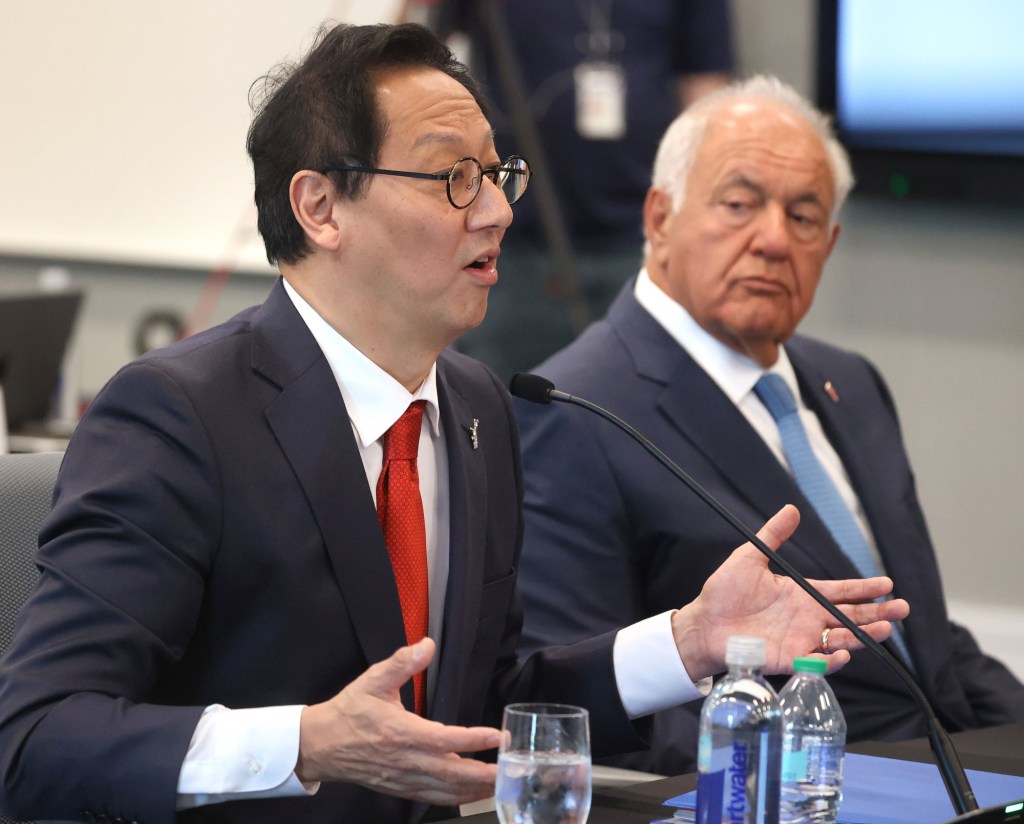In an unprecedented move, Florida’s Board of Governors has rejected the appointment of Santa Ono as the next president of the University of Florida, following a contentious meeting marked by debates over diversity, equity, and inclusion (DEI) initiatives.
The board’s decision, which ended in a 10 to 6 vote against Ono, marks the first instance of the board overturning a university’s presidential selection. This decision came despite Ono receiving unanimous approval from UF’s board of trustees.
Ono, who had resigned from his position as the University of Michigan’s president for the role at UF, now faces an uncertain future. Reactions from those present included gasps and shock, highlighting the unexpected nature of the vote.
Amanda Phalin, a former board of governors member and current UF professor, described the outcome as an “embarrassment” with potentially long-lasting negative effects on the university’s reputation and its ability to attract qualified leaders.
Critics of Ono pointed to his past support for DEI policies as a major concern. Board member Aubrey Edge questioned Ono’s abrupt change in stance on these issues.
The university must now restart its search for a new president, a process that could extend up to a year.
Had the board confirmed him, Ono would have held a contract through 2030 with a $3 million annual salary. The University of Michigan, where Ono previously served, ranks third nationally among public universities, while UF holds the seventh spot.
Held at the University of Central Florida’s downtown Orlando campus, the meeting dedicated nearly four hours to discussing Ono’s potential presidency. During his defense, Ono expressed his enthusiasm for leading UF, stating, “It’s a privilege to join an institution that not only pursues excellence, but also sets the national standard for accountability and reform in higher education.”
As a respected molecular immunologist, Ono has previously led the University of British Columbia and the University of Cincinnati. UF’s board of trustees had earlier praised him for his academic excellence.
However, his selection quickly sparked backlash from conservative circles, labeling him as too progressive due to his previous support for DEI programs. Criticisms also arose regarding his handling of protests at Michigan following Hamas’ attacks on Israel, with figures like Sen. Rick Scott questioning his commitment to protecting Jewish students.
Despite affirming his support for Florida’s higher education direction and pledging to align with Gov. Ron DeSantis’ agenda, Ono faced significant opposition. His employment contract, as reported by the Miami Herald, contained clauses that seemed tailored to conservative expectations, including hiring conditions aligned with Florida’s educational approach.
DeSantis, who appointed many members of both UF’s board and the Board of Governors, admitted some of Ono’s past statements made him uneasy but acknowledged those who supported his selection believed in Florida’s policies.
Supporters like Mori Hosseini, chair of UF’s board of trustees, emphasized Ono’s prestigious background as a beneficial addition to Florida’s educational landscape. Interim President Kent Fuchs also endorsed Ono, highlighting his leadership qualities.
Opponents, however, voiced concerns over Ono’s past actions and statements. Wendy Nissan, a UF parent, criticized Ono for his perceived failures in supporting Jewish students at Michigan and urged the board to reject his appointment.
The meeting also saw internal disagreements on the board, particularly involving Vice Chair Alan Levine, who scrutinized Ono’s past actions at Michigan, and Paul Renner, who questioned Ono’s DEI comments.
Originally Published:
Read More Here









Be First to Comment